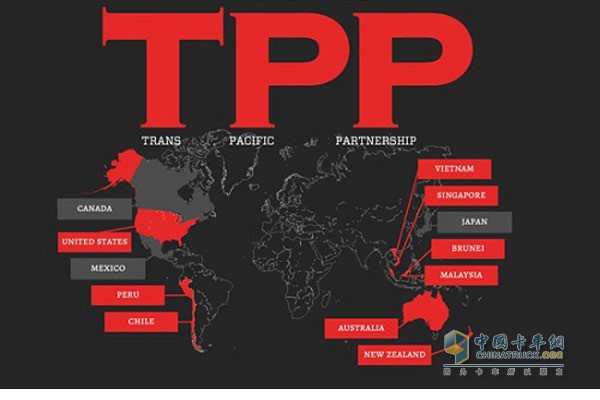According to media reports, based on the Trans-Pacific Economic Cooperation Agreement (TPP), tariffs levied by the United States on Japanese-produced auto parts will be completely repealed in the fifteenth year of the agreement’s entry into force. Full vehicle tariffs will also be revoked in the 25th year of the agreement’s entry into force. TPP will abolish 99.9% of the tariffs on industrial products, but the United States has positioned itself as an important goods vehicle. Japan and the United States have launched a fierce offensive and defensive phase until the final stage of negotiations. Japanese companies also plan to use the elimination of tariffs in Canada and Vietnam to expand exports within the region. In 2013, when Japan decided to participate in the TPP negotiations, Japan and the United States reached a consensus on the longest period for revocation of automobile tariffs in all TPP items. This consensus is regarded as "Japan's entry into the negotiations" (Japan Ministry of Economy, Trade and Industry). From the start of the negotiations, the disadvantages have been identified in the vehicle sector. For Japan, the content of the TPA Agreement over the free trade agreement (FTA) concluded between South Korea and the United States, which compete with automotive parts and other industrial products, has become an important issue. However, negotiations have reached an impasse. The Congress, which supports the Democratic Party’s automotive industry, opposes the United States to make concessions. The Japan-US automobile agreement reached consensus at the recent Atlanta meeting. The content of the Japan-U.S. consensus is that tariffs for 87.4% of the nearly 400 automotive-related components such as engines , brakes, and transmissions will be immediately withdrawn. With the immediate removal of the tariff rate (83%) above the US-Korea FTA, Japan has reached a minimum target. The tariff of the auto body that previously determined the longest revocation deadline was actually shortened by 5 years from the 30-year maximum revocation deadline to 25 years. However, some of the items have been strongly resisted by the United States, and the deadline for revocation of items such as turbochargers has been extended to 15 years. Compared with the immediate removal of tariffs in 99% of household appliances, industrial machinery, and chemical products, the script for canceling tariffs is slow. In addition, Japan will actively promote the results of negotiations with countries outside the United States. The 6.1% automobile tax levied by Canada will be cancelled within 5 years. Nearly 70% of the tariff levied by Vietnam on cars with a displacement of more than 3000cc will be cancelled within 10 years. Australia will immediately cancel 5% of new car tariffs. Japan’s auto exports to TPP-affiliated countries account for 48% of total exports, and auto parts also account for 40%. With longer duration of tariff repeal, Japanese companies’ profits gained in the medium to long term will increase. TPP targets a wide range of markets from North America (USA, Canada) to Asia (Vietnam, Malaysia, etc.), and is expected to further increase its importance as a production and sales market in the region. Apv Phe Gaskets,Pharmaceutical Phe Gasket For Apv,Apv Phe Gasket,Phe Gasket For Apv Dongguan Runfengda F&M Co., Ltd , https://www.runfengd.com
TPP will greatly reduce or even eliminate the tariffs of member countries